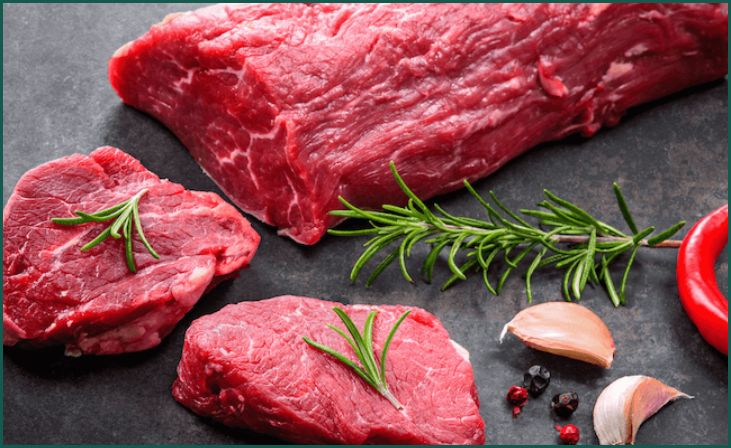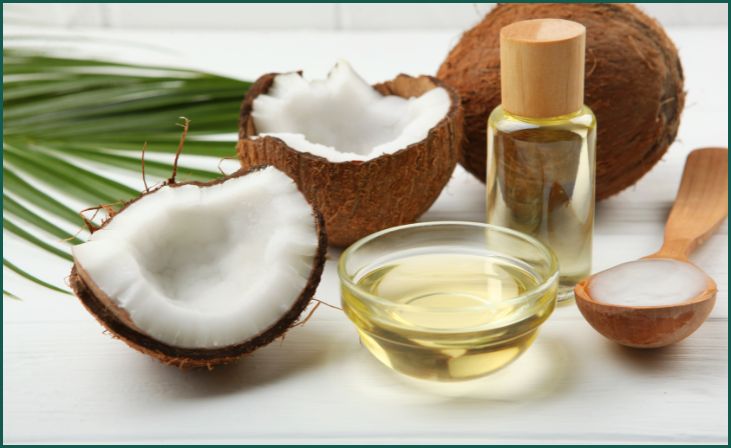Inviting a dog into your family entails a profound responsibility to ensure their well-being, and one of the fundamental aspects of this care revolves around their diet. In this pivotal role of pet parenthood, providing optimal nourishment becomes a cornerstone for fostering a happy and healthy furry companion. Amidst the plethora of dietary choices available, veterinarians stand as invaluable guides, playing a pivotal role in steering pet owners towards the most health-conscious options. As we delve into the realm of the 10 healthiest foods for dogs, it becomes apparent that these choices are not just about sustenance; they contribute significantly to the overall well-being of your four-legged family member.
Table of Contents
ToggleThe 10 Healthiest Foods For Your Dog
Lean Meat

High-quality, lean meats like chicken, turkey, and lean beef are essential components of a dog’s diet. These proteins provide the building blocks for strong muscles, aiding in overall physical health. Additionally, they offer a rich source of amino acids, crucial for various bodily functions. To ensure optimal health, it’s important to cook these meats thoroughly and avoid seasoning with potentially harmful additives such as garlic or onions. Serving lean meats in appropriate portions helps maintain a healthy weight, reducing the risk of obesity-related issues.
Also Read:- Best Senior Dog Food
Fish
Fatty fish, such as salmon and mackerel, are valuable additions to a dog’s diet due to their high omega-3 fatty acid content. These essential fatty acids play a key role in promoting a glossy, healthy coat and supporting joint health. Omega-3s also contribute to cardiovascular well-being and can aid in reducing inflammation, benefiting dogs with conditions like arthritis. When incorporating fish into your dog’s diet, ensure it’s cooked and bone-free, avoiding excessive seasoning or added oils. Regular but controlled consumption can significantly contribute to your pet’s overall vitality.
Vegetables
Vegetables like carrots, broccoli, and sweet potatoes offer a spectrum of vitamins, minerals, and fiber beneficial for canine health. Carrots, rich in beta-carotene, support vision and immune function. Broccoli provides antioxidants and fiber, aiding digestion. Sweet potatoes are excellent sources of vitamins A and C, promoting skin and immune health. These vegetables also contribute to dental health by encouraging chewing, reducing plaque buildup. When preparing vegetables for your dog, it’s important to cook them to enhance digestibility. However, avoid using seasonings or additives that could be harmful to your pet. Moderation is key to ensure a balanced diet.
Blueberries
Blueberries are small nutritional powerhouses for dogs, packed with antioxidants that combat free radicals and support overall health. These tiny, flavorful berries contain vitamins C and K, along with fiber, contributing to a well-rounded diet. Antioxidants play a crucial role in preventing cell damage and supporting a strong immune system. As a low-calorie treat, blueberries can be a tasty and healthy alternative to high-calorie dog biscuits or treats. However, like any treat, they should be offered in moderation to avoid overconsumption of natural sugars.
Pumpkin

Plain, cooked pumpkin is a versatile and nutritious addition to your dog’s diet. Rich in fiber, it aids in digestion by promoting regular bowel movements and preventing constipation. Pumpkin also contains beta-carotene, which converts to vitamin A, supporting vision and immune function. The soluble fiber in pumpkin can help manage diarrhea or soft stools by absorbing excess water. When incorporating pumpkin into your dog’s meals, ensure it is plain and free from additives like sugar or spices. Small portions, especially for smaller breeds, are ideal to avoid excessive calorie intake.
Don't just scroll, subscribe!
BuzzTrail's unique web-stories are the cure for boredom you've been waiting for.
Greek Yogurt
Greek yogurt is a dairy product rich in probiotics, the beneficial bacteria that support a healthy digestive system. These live cultures can aid in maintaining a balanced gut flora, reducing the risk of gastrointestinal issues. Additionally, Greek yogurt is a good source of protein and calcium, contributing to muscle and bone health. When selecting Greek yogurt for your dog, opt for plain, unsweetened varieties without artificial additives. While yogurt is generally safe for dogs, it’s crucial to introduce it gradually, especially if your pet hasn’t consumed dairy before, and to monitor for any signs of lactose intolerance.
Eggs
Eggs are a complete protein source for dogs, containing all the essential amino acids necessary for various bodily functions. The protein in eggs supports muscle development and maintenance, making them a valuable dietary component. Eggs also provide essential vitamins, including B12 and riboflavin, promoting overall well-being. Whether served boiled, scrambled, or poached, eggs offer versatility in preparation. It’s important to cook eggs thoroughly to eliminate the risk of salmonella. While eggs can be a nutritious addition to your dog’s diet, moderation is key, as excessive consumption may lead to an imbalance in certain nutrients.
Oatmeal
Oatmeal is a wholesome grain option for dogs, providing a good source of soluble fiber and essential nutrients. The soluble fiber in oatmeal aids in digestion by promoting a healthy bowel movement and can be beneficial for dogs with sensitive stomachs. Oatmeal also contains various vitamins and minerals, including B vitamins and iron. When preparing oatmeal for your dog, choose plain, cooked oats without added sugars or artificial flavorings. While oatmeal can be a nutritious and energy-rich addition to your dog’s diet, it’s essential to monitor portions, especially for dogs prone to weight issues.
Quinoa
Quinoa is a nutritious alternative to traditional grains and an excellent source of protein for dogs. It contains all nine essential amino acids, making it a complete protein source. Quinoa is also rich in fiber, aiding in digestion and promoting a feeling of fullness. This gluten-free grain is suitable for dogs with grain sensitivities and can be a valuable addition to a well-balanced diet. When preparing quinoa for your dog, ensure it is plain and cooked without added spices or seasonings. As with any new food, introduce quinoa gradually and monitor your dog for any signs of allergies or sensitivities.
Also Read:- Top Small Dog Breeds
Coconut Oil

Coconut oil is a source of medium-chain fatty acids (MCFAs), such as lauric acid, which can have various health benefits for dogs. MCFAs are easily digestible and can contribute to a healthy coat and skin. Coconut oil also possesses antimicrobial properties, potentially aiding in the prevention of infections. When introducing coconut oil into your dog’s diet, start with small amounts and gradually increase to avoid digestive issues. It’s crucial to choose virgin, unrefined coconut oil to ensure maximum nutritional benefits. While coconut oil can be a beneficial supplement, moderation is key due to its high-calorie content, and consulting with your veterinarian is advisable, especially for dogs with specific health concerns.
Conclusion
To summarize, delivering the optimum diet for your dog is a nuanced process that necessitates a thoughtful blend of balanced nutrition, dietary variety, and careful moderation. Achieving the right balance in these aspects is pivotal for the overall well-being of your beloved canine companion. The integral role of veterinarians in this endeavor cannot be overstated. Their expertise and insights are instrumental in guiding pet owners through the complex landscape of dog nutrition. By relying on the professional advice of veterinarians, pet owners can make informed decisions regarding their dog’s dietary requirements, ensuring a foundation for a life of joy and vitality.
Frequently Asked Questions
Can I prepare homemade meals for my dog?
Can I prepare homemade meals for my dog?
Yes, but it’s essential to consult with your veterinarian to ensure you’re meeting all nutritional requirements. Homemade diets should be carefully planned to avoid deficiencies.
What is the significance of a balanced diet for dogs?
What is the significance of a balanced diet for dogs?
A balanced diet supports your dog’s overall health, providing the necessary nutrients for energy, growth, and immune function. Veterinarians stress the importance of choosing high-quality, well-balanced meals.

